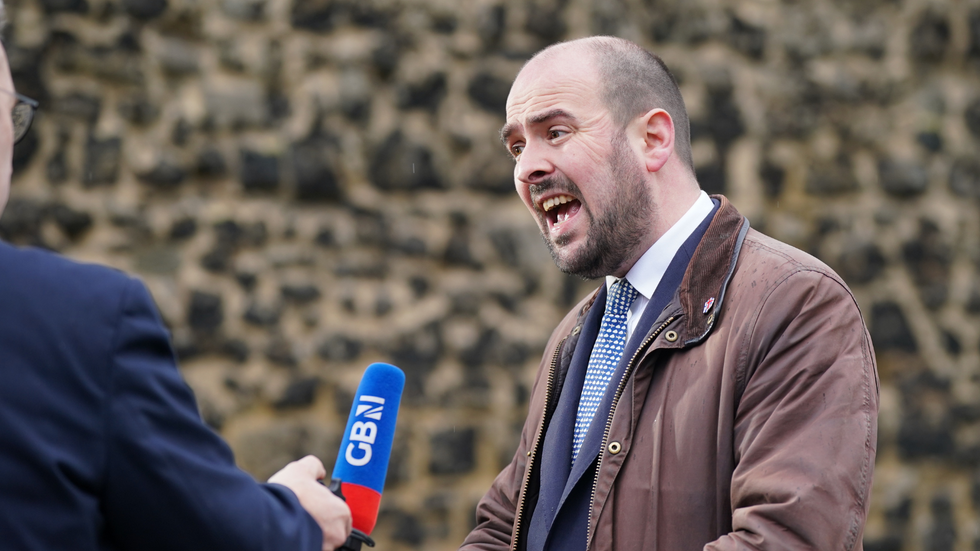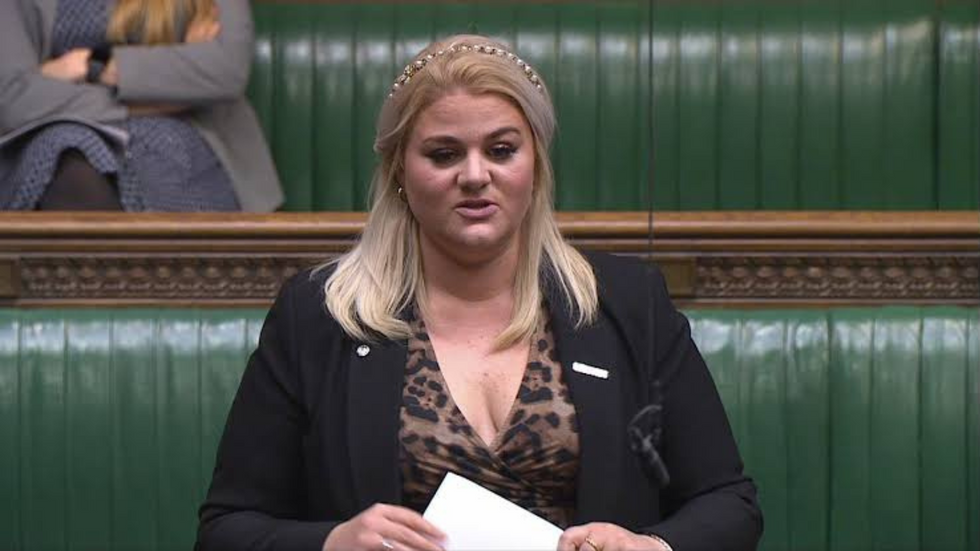James Saunders
Guest Reporter
Marriages between first cousins could finally be banned in Britain if a new proposal makes it through Parliament.
Tory MP Richard Holden is set to table the Marriage (Prohibited Degrees of Relationship) Bill in the Commons on Tuesday - where he's expected to argue that such marriages are linked to higher rates of birth defects and can "reinforce negative structures and control women".
"People already think it is illegal and then are surprised when you mention it isn't," Holden said - but Labour is insisting it needs time to "properly consider our marriage law" before taking a public position on the issue.
Current UK law prohibits marriages between siblings, parents and children, but not between first cousins, according to the Marriage Act 1949.

The Sexual Offences Act 2003 also criminalises sexual activity with certain family members, though this does not include first cousins.
Holden's proposed changes would require amendments to both these pieces of legislation.
Studies show that first-cousin marriages are associated with "approximately double the rate of birth defects compared to the general population", the Basildon & Billericay MP said.
Holden has pointed out that the controversial form of marriage is "cultural rather than religious" in "some of the communities where it is more prevalent".
LATEST POLITICS UPDATES FROM GB NEWS:

And his calls for a law change follow research by Dr Patrick Nash, who has warned that between 38 and 59 per cent of British Pakistanis marry first cousins - while Alison Shaw, a professor of social anthropology at Oxford, has noted that rate may be rising.
Ahead of his address to Parliament on Tuesday, Holden said: "Building on my previous work to ban hymenoplasty and so-called virginity testing in the last Parliament, I will urge the Government to reconsider the legality of first-cousin marriage in the UK.
"Many nations and states have taken action on this issue in recent years and it is time for us to do the same."
Justice Minister Alex Davies-Jones, in response to a written parliamentary question on clamping down on first-cousin marriages, said: "Section one of the Marriage Act 1949 sets out that any marriages that take place within prohibited degrees of relationship are void.
"Under the legislation, prohibited degrees of relationship for marriage include marriages to a sibling, parent or child, but not marriages between first cousins.
"The Sexual Offences Act 2003 also makes sexual activity with the above family members, amongst others, a criminal offence, but this does not include first cousins.
"Placing restrictions on first-cousin marriage would require changes to the Marriage Act 1949 and potentially the Sexual Offences Act 2003.
"We are aware that all aspects of weddings, including first-cousin marriage, are important issues. We will take the time as a new Government to properly consider our marriage law, including the Law Commission's 2022 wedding report, before publicly setting out our position."
Find Out More...
Tory MP Richard Holden is set to table the Marriage (Prohibited Degrees of Relationship) Bill in the Commons on Tuesday - where he's expected to argue that such marriages are linked to higher rates of birth defects and can "reinforce negative structures and control women".
"People already think it is illegal and then are surprised when you mention it isn't," Holden said - but Labour is insisting it needs time to "properly consider our marriage law" before taking a public position on the issue.
Current UK law prohibits marriages between siblings, parents and children, but not between first cousins, according to the Marriage Act 1949.

The Sexual Offences Act 2003 also criminalises sexual activity with certain family members, though this does not include first cousins.
Holden's proposed changes would require amendments to both these pieces of legislation.
Studies show that first-cousin marriages are associated with "approximately double the rate of birth defects compared to the general population", the Basildon & Billericay MP said.
Holden has pointed out that the controversial form of marriage is "cultural rather than religious" in "some of the communities where it is more prevalent".
LATEST POLITICS UPDATES FROM GB NEWS:
- 'There is plenty of housing!' Rayner flounders over plans to house 2.5m migrants expected in UK
- Starmer welcomes fall of Assad's 'barbaric regime' and aims to 'restore stability' in Syria
- Suella Braverman's husband joins Reform in latest defection coup for Nigel Farage's party

And his calls for a law change follow research by Dr Patrick Nash, who has warned that between 38 and 59 per cent of British Pakistanis marry first cousins - while Alison Shaw, a professor of social anthropology at Oxford, has noted that rate may be rising.
Ahead of his address to Parliament on Tuesday, Holden said: "Building on my previous work to ban hymenoplasty and so-called virginity testing in the last Parliament, I will urge the Government to reconsider the legality of first-cousin marriage in the UK.
"Many nations and states have taken action on this issue in recent years and it is time for us to do the same."
Justice Minister Alex Davies-Jones, in response to a written parliamentary question on clamping down on first-cousin marriages, said: "Section one of the Marriage Act 1949 sets out that any marriages that take place within prohibited degrees of relationship are void.
"Under the legislation, prohibited degrees of relationship for marriage include marriages to a sibling, parent or child, but not marriages between first cousins.
"The Sexual Offences Act 2003 also makes sexual activity with the above family members, amongst others, a criminal offence, but this does not include first cousins.
"Placing restrictions on first-cousin marriage would require changes to the Marriage Act 1949 and potentially the Sexual Offences Act 2003.
"We are aware that all aspects of weddings, including first-cousin marriage, are important issues. We will take the time as a new Government to properly consider our marriage law, including the Law Commission's 2022 wedding report, before publicly setting out our position."
Find Out More...